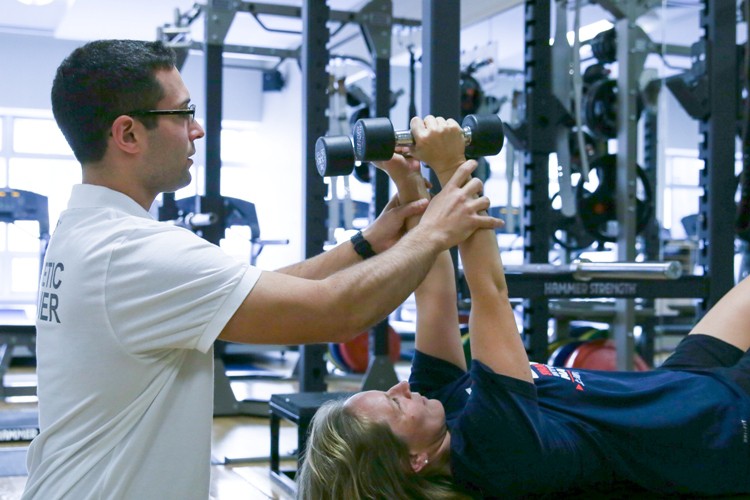By Jared Maisel
Participating in sports is an excellent activity that helps children to develop critical physical, emotional and social skills. It is important to keep in mind, however, that with sports participation comes an inherent risk of injury or illness, which in some cases can be serious or even life-threatening. Every year, youth sport participants run the risk of conditions ranging from musculoskeletal injuries and concussions to heat illnesses and even sudden cardiac arrests.
Safeguarding kids against sports injuries means educating them on the proper preparation and conditioning required to safely take part in certain physical activities. This is especially true for educational institutions that offer sports participation as part of a student’s overall education. Schools can best serve their student-athletes by having on-site medical professionals specially trained to treat sports-related injuries and conditions should they happen to occur.
As a Certified Athletic Trainer (ATC), I am a health professional specializing in the prevention, assessment, treatment and rehabilitation of injuries and illnesses that occur in athletes and the physically active. An ATC is an immediate healthcare provider and resource for nearly any medical situation, and are fairly common in the United States. You can find us working for universities, high schools, physical therapy clinics, the military, sport performance groups, hospitals or orthopedic clinics. We are the people you may have seen on TV running onto the field to help an injured athlete.
In Shanghai, I am employed by the Institute for Western Surgery (IWS), an American orthopedic group in China, and contracted to Concordia International School to perform these duties. IWS Athletic Training Internship Program was conceived in 2010, and each year it sends four ATCs to work with international schools and community sports organizations in China. IWS employs three full-time Western-trained doctors: a pain management specialist, a sports medicine surgeon and a pediatric and spine surgeon.
My daily duties for the student-athletes at Concordia include first-aid management, treatment and rehabilitation of injuries, sports practice and game coverage, medical documentation and physician referrals. I also serve as a wellness coordinator for the Concordia staff. I meet daily with faculty, individually or in groups, to consult on nutrition, fitness, medical conditions and orthopedic issues. I provide a variety of health-enhancing services — fitness programs, personal training and injury rehabilitation exercises.
Many sports-related injuries occur due to a lack of physical preparation before participating in a sport or activity. Conditioning, strength, agility and flexibility are essential components for sport and overall health. If an individual fails to have a foundation in these areas, there can be a breakdown in the kinetic chain. We usually see this develop into tendonitis, muscle strains, shin splints, severe muscle soreness, etc. Having a decent fitness baseline enables an individual to perform better and decrease his/her chances of injury. Students can accomplish this by working with their coach and PE teacher.
If a child or other member of the family sustains an injury while playing a sport and you don’t have access to an ATC, seek treatment from your current physician or healthcare personnel. For serious injuries, request recommendations or second opinions. Before committing to any health service or professional, ask about their education, experience and training. For orthopedic issues, do not underestimate the need for physical rehabilitation. Be wary of any physician that wants to jump straight into surgery. When working with a rehabilitation professional (physical therapist, physiotherapist, athletic trainer), be sure to get value out of their services – ask for a home exercise program.
Living overseas can be stressful enough, and if combined with a medical issue or injury, it can be overwhelming. It’s a good idea for expatriate families to create their own emergency action plan with a list of qualified medical specialists such as: general practitioner, orthopedic, OB/GYN, ophthalmologist, dentist, etc. You’ll also want directions to the closest hospital with an international patient department. Ambulances are usually limited in medical supplies and have a long response time - a taxi is likely the best option, especially here in Shanghai. Preparing contact information ahead of time, with reputable physician contacts, will allow individuals to be quickly referred to the care they require.
// Jared Maisel, MS, ATC, CSCS
Institute for Western Surgery/Concordia International School Shanghai
Athletic Trainer/Wellness Coordinator


















